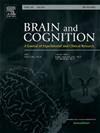积极的学校氛围能促进儿童的阅读成绩、心理健康和大脑皮层变薄
IF 1.4
3区 心理学
Q3 NEUROSCIENCES
引用次数: 0
摘要
越来越多的证据强调学校氛围是儿童学习成绩和心理健康的重要保护因素。然而,学校氛围是否以及如何影响儿童从行为到大脑的发展,在很大程度上仍然是未知的。本研究旨在探讨学校氛围对儿童阅读成绩、心理健康和皮质厚度的保护作用。行为和神经影像学数据来自400名6-12岁儿童(平均年龄= 9.65岁)。首先,研究结果表明,积极的学校氛围与更好的阅读成绩和减少内化/外化问题显著相关。值得注意的是,学校环境弥补了不利的家庭环境,特别是在父母受教育程度较低的儿童中。第二,外化问题显著中介了学校氛围与阅读成绩之间的关系。第三,与同龄人相比,来自更积极氛围学校的儿童在舌/牙周/楔和后中央区域(视觉处理和感觉运动整合的中心)表现出加速的皮质变薄。舌/牙根/楔叶和中央后回皮层厚度显著调节了学校氛围对阅读成绩的影响。这些结果强调了学校氛围作为一个多层次的保护因素,通过行为调节和皮层变薄来促进学业弹性。本文章由计算机程序翻译,如有差异,请以英文原文为准。
Positive school climate boosts children’s reading achievement, mental health and cortical thinning
Growing evidence underscores school climate as an important protective factor for children’s academic achievement and mental health. However, whether and how school climate impacts child development from behavioral to brain has remained largely unknown. This study aimed to investigate the protective roles of school climate in children’s reading achievement, mental health, and cortical thickness. Behavioral and neuroimaging data were obtained from 400 children aged 6–12 years (mean age = 9.65 years). First, results showed that a positive school climate was significantly associated with better reading performance and reduced internalizing/externalizing problems. Notably, school climate compensated for disadvantaged family environments, particularly among children with less educated parents. Second, externalizing problems significantly mediated the link between school climate and reading achievement. Third, compared with their peers, children from schools with more positive climate showed accelerated cortical thinning in the lingual/ pericalcarine/ cuneus and postcentral regions, the hubs for visual processing and sensorimotor integration. Fourth, the cortical thickness of the lingual/ pericalcarine/cuneus and postcentral gyri significantly mediated the role of school climate in reading achievement. These results highlight school climate as a multi-level protective factor that fosters academic resilience via behavioral regulation and cortical thinning.
求助全文
通过发布文献求助,成功后即可免费获取论文全文。
去求助
来源期刊

Brain and Cognition
医学-神经科学
CiteScore
4.60
自引率
0.00%
发文量
46
审稿时长
6 months
期刊介绍:
Brain and Cognition is a forum for the integration of the neurosciences and cognitive sciences. B&C publishes peer-reviewed research articles, theoretical papers, case histories that address important theoretical issues, and historical articles into the interaction between cognitive function and brain processes. The focus is on rigorous studies of an empirical or theoretical nature and which make an original contribution to our knowledge about the involvement of the nervous system in cognition. Coverage includes, but is not limited to memory, learning, emotion, perception, movement, music or praxis in relationship to brain structure or function. Published articles will typically address issues relating some aspect of cognitive function to its neurological substrates with clear theoretical import, formulating new hypotheses or refuting previously established hypotheses. Clinical papers are welcome if they raise issues of theoretical importance or concern and shed light on the interaction between brain function and cognitive function. We welcome review articles that clearly contribute a new perspective or integration, beyond summarizing the literature in the field; authors of review articles should make explicit where the contribution lies. We also welcome proposals for special issues on aspects of the relation between cognition and the structure and function of the nervous system. Such proposals can be made directly to the Editor-in-Chief from individuals interested in being guest editors for such collections.
 求助内容:
求助内容: 应助结果提醒方式:
应助结果提醒方式:


